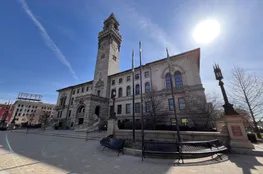Atlantic City officials have dismantled a notorious homeless encampment beneath the iconic boardwalk, where resourceful drifters had established surprisingly well-appointed makeshift lodgings. These makeshift apartments came complete with heaters, real beds, and even pirated beer taps. The residents had cleverly set up delivery points for fast food and pizzas. Jarrod Barnes, the city’s director of Health and Human Services, likened the encampment to an illicit apartment complex, where individuals had to crawl beneath the boardwalk for about 50 yards to enter what he called a modern-day “Hooverville.”
Barnes described the situation, highlighting rooms with heaters, electric bikes charging stations, hot plates, and even having wooden floors. One resident had lived under the boardwalk for seven years and managed to have pizzas and other food delivered by giving out the Showboat casino address and an “apartment U” directive to delivery drivers. The makeshift home even featured a workstation and living room setup. During attempts to relocate these individuals, Barnes encountered situations where residents were cooking eggs and staying warm with efficient heaters, making it nearly as cozy as above-ground homes.
Kenneth Mitchem, Atlantic City’s director of social services, praised the ingenuity he witnessed under the boardwalk. Residents had even tapped into beer lines from a nearby resort's Landshark Bar and Grill. However, the advanced shantytown presented dangers, evident when a fire broke out in April, tragically killing a 67-year-old man. This incident prompted the Boardwalk Improvement Group (BIG) to take action. The city then cleaned and fenced up the area, aiming to keep the boardwalk clear of such encampments.
In July, the city launched a new initiative to address this issue, deploying teams to engage with homeless individuals, offering housing and mental health services. During one mission, Barnes persuaded a distressed woman to admit herself into a detox center. While successful in some cases, Barnes noted a significant number of homeless individuals were reluctant to accept offered assistance, often preferring their rough lifestyle. Consequently, the city council is considering a law to prohibit sleeping in public spaces, a move supported by a recent Supreme Court ruling allowing municipalities to ban homeless encampments.
Mitchem viewed this legal backing as crucial to pressuring the unhoused to accept help. He emphasized that with this new enforcement mechanism, the city could overcome excuses previously used by those resistant to change. He believes this decision will facilitate the city's efforts in providing necessary aid to those living on the streets.
























